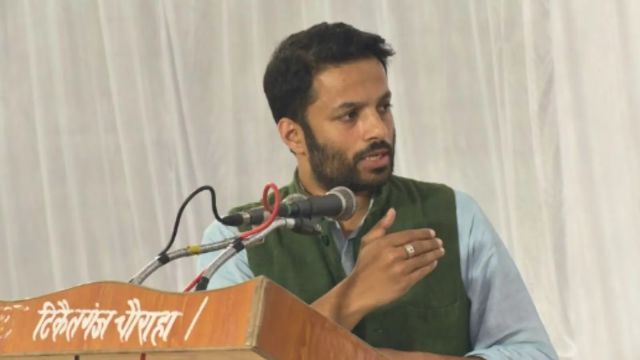
Written by Shivani Vij
A gag order restricts a person’s ability to speak. Courts issue such orders, either preventively or punitively, to limit free expression. In a liberal democracy like India, where free speech is a cornerstone, gag orders are especially questionable, particularly when imposed as a bail condition.
First, Ranveer Allahabadia, who is facing prosecution for his comments in the show India’s Got Latent, was granted interim protection from arrest, however, on the condition that “he or his associates shall not air any show on YouTube or any other audio/video mode of communication”. Further, he was required to provide an undertaking that his digital podcast would adhere to the so-called standards of decency and morality.
Second, Mohammad Amir Ahmad (also known as Ali Khan Mahmudabad), who is facing prosecution for his social media posts on the recent terror attacks in India, was also granted interim bail on the condition that he would be “restrained from expressing any opinion in relation to the terrorist attack on Indian soil or the counter response”.
Significance of the Mohammed Zubair case
These orders must be analysed in the context of Mohammed Zubair. The counsel for the State of Uttar Pradesh argued that Zubair, of Alt News, be barred from tweeting when he is on bail. The State seemed to have thought that it would advance a fair trial and proper investigation. Or perhaps it presumed the accused’s guilt at the FIR stage itself and that any further tweets would cause public unrest, despite conducting no inquiry or assessment on whether the statements actually constituted incitement.
Rejecting this entirely, the court held that a gag order neither fits the illustrative bail conditions under Sections 437 and 438 of the Code of Criminal Procedure, nor does it have any nexus to a proper investigation or to secure the attendance of the accused. Besides, a blanket order asking the accused not to express his opinion, which he is entitled to as a citizen, is disproportionate and has a chilling effect on freedom of speech.
It is unusual that the Supreme Court overlooked the significant precedent set in Zubair while issuing the recent gag orders. The Court also appeared to disregard the principle that bail conditions must be directly related to the ongoing investigation and its subject matter. There is no clear justification for how restricting future speech would assist in probing past media posts. Even if a later statement or comment incites public reaction, it would trigger a separate criminal case, rather than being linked to the existing one, which has already taken place.
A right at the cost of another
The prior restraining orders also seem to suggest that to uphold liberty under Article 21, the Court finds it necessary to limit free speech and the right to conduct business or practice a profession (Article 19(1)(g)), which has happened in these two cases. Such an interpretation significantly broadens the scope of reasonable restrictions under Article 21, effectively amounting to judicial censorship and infringing on other fundamental rights, particularly when the accused has not been found guilty in a court of law.
This also bears similarities to preventive detention orders, which restrict a person’s movement when there is a risk of crime or a threat to public safety; the key difference being that gag orders prevent the person from speaking, ostensibly to avoid harmful speech. It is rather odd that bail conditions in ordinary IPC/BNS offences have gathered the essence of preventive orders, which were meant to primarily safeguard law and order situations.
Even the recent verdict in Wikimedia v ANI (2025) reiterates that it is not the court’s domain to tell media houses what to say and what to delete or take down, with the only exception being postponement orders, which restrain media houses from delaying the reporting of a case. However, even those are for a limited duration and passed sparingly, only where there is a real and substantial risk of prejudice to trial (Sahara v SEBI).
The recent gag orders are no doubt a disproportionate restriction on granting bail and should not become the practice of the highest constitutional court in the country, which is often adopted by the district courts and high courts.
The writer is a Supreme Court advocate